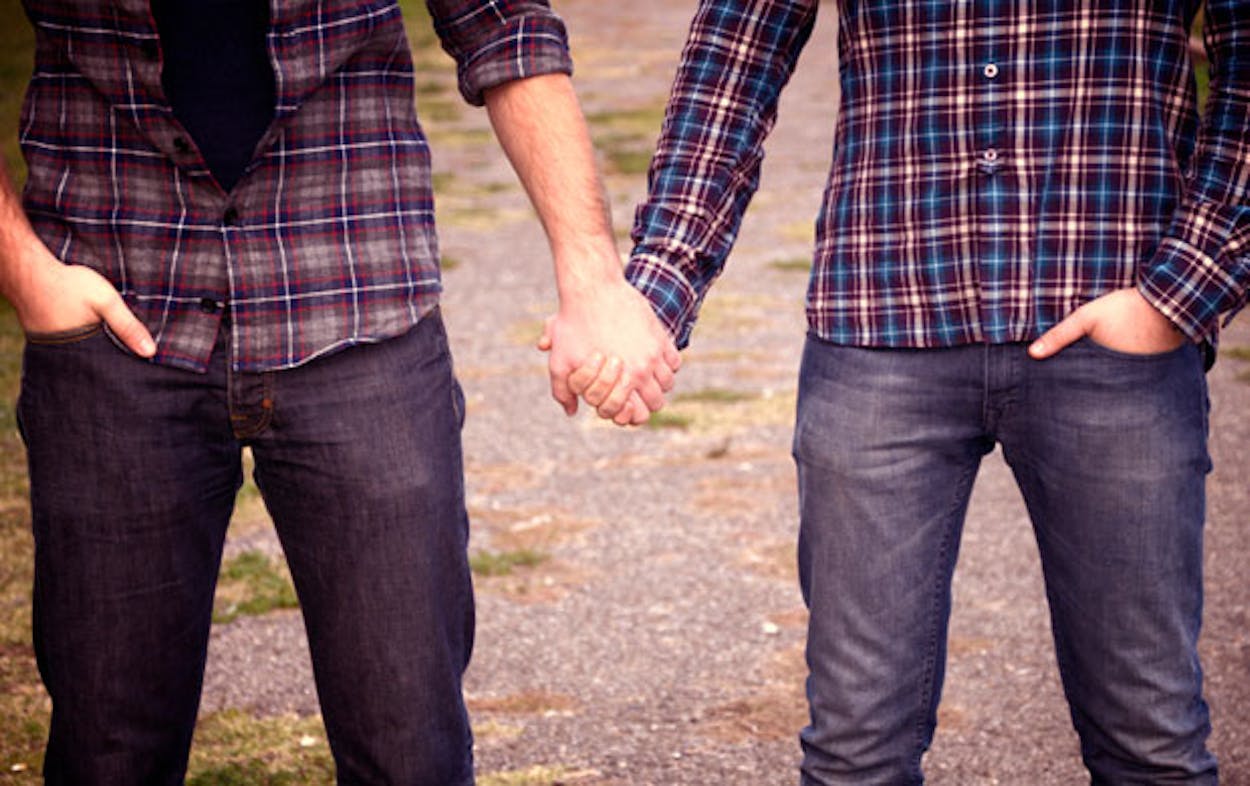Three Texas universities have made their way onto this year’s installment of Princeton Review’s “LGBT-unfriendly” list.
Texas A&M University-College Station, Baylor University, and the University of Dallas landed on the list of twenty American schools found to be most uncomfortable for homosexual students.
To draw up this list and 61 others, the Princeton Review’s website says the organization asked 122,000 students at 377 colleges around the country 80 questions about academics and campus life. The Princeton Review then analyzes these answers and ranks the schools on a variety of lists, including the “most politically active” campuses, “jock schools” and colleges with the “least happy students.”
A Houston Chronicle blogger shared Texas’ showing in the latest Princeton Review ranking:
No. 7 – Texas A&M University
No. 10 – Baylor University
No. 15 – University of Dallas, a private Catholic school in Irving
So why did our state pick up nearly one-fifth of the schools on this lineup? And just how “unfriendly” are they toward students who identify as gay, lesbian, bisexual, or transgender?
Texas A&M
Texas A&M, unlike Baylor and the University of Dallas, is a public institution, one of only five on the list. After being ranked tenth in 2011, Texas A&M jumped up three spots this year, despite being the only Texas school on the list with a GLBT Resource Center and at least one university-recognized student organization supporting GLBT students. The resource center, which opened in 2007, aims to educate “all campus and community constituencies on GLBT issues through programming about sexual orientation and gender identity/expression, advocacy, leadership, and visibility,” according to its website.
Still, groups like the Texas Aggie Conservatives have been working for years to defund the resource center, which operates on about $100,000 annually with funds comprised of student service fees, alumni endowments, and tuition money. In 2011, the American Independent reported that this conservative group has complained of a funding bias and suggests the university implement a “traditional family values” resource center.
Baylor University
This is also not Baylor’s first time to land on the LGBT-unfriendly list, though a writer at the Dallas Observer pointed out that the country’s largest Baptist university was absent from the 2011 list. So, what changed? Well, just last year, Baylor’s sociology department proposed a course entitled “Homosexuality as a gateway drug,” the Dallas Voice reported, which resulted in backlash from the gay community as well as other universities. The class name was eventually changed, though it remained in the course catalog.
And then there’s the fact that students have repeatedly asked to the university to grant the Sexual Identity Forum “formal status” as an student organization, but have been rebuffed by university officials, the New York Times reported in 2011. The forum, a group of 50 students that meets weekly with mission of helping to “provide a safe place of open discussion on sexual identity, the LGBTQ community, feminism, social constructs, and a variety of other related topics.” But Kevin Jackson, the university’s vice president of student life, maintains that “sexuality issues are ‘too complex’ for a student group to deal with,” according to a post on the group’s blog. The group continues to meet unofficially and encourages supporters to write letters to the faculty for their cause. (Status as a chartered student organization would give the group access to university funding and allow them to post flyers about on-campus events.)
The University of Dallas
The University of Dallas, which ranked ninth on last year’s list, is a private Catholic liberal arts college with enrollment just under 3,000, and their website doesn’t show any indication of having a LGBT support group on campus. When the rankings came out last year, a school spokesperson sent a statement to the Dallas Observer, labeling the university “enthusiastically Catholic” and saying they “are focused on providing a supportive environment to all of our students. We believe that all human persons are made in the image and likeness of God and deserve love, respect, and compassion. Within that framework, the religious and secular activities and events on the UD campus are open to all students regardless of their race, religion or sexual orientation.”
SMU administrators called the Princeton Review’s methodology into question last year, saying the entire list was based on one question on the 80-part survey. The Observer’s Anna Merlan wrote, “A school is listed as LGBT-friendly or not based on how students respond to the query, ‘Do students, faculty and administrators at your college treat all persons equally regardless of their sexual orientations and gender identify/expression?'” SMU is off the list this year after four previous appearances.
It seems there is a strong correlation between LGBT unfriendly colleges and the Princeton Review’s ranking for the nation’s most religious students. On that list, the University of Dallas comes in at No. 5, and Baylor rounds out the top ten, while Texas A&M holds the No. 13 place.
Prince Review’s complete list of LGBT unfriendly higher institutions of learning:
1. Grove City College (PA)
2. Hampden-Sydney College (VA)
3. College of the Ozarks (MO)
4. Wheaton College (IL)
5. University of Notre Dame (IN)
6. Catholic University of America (DC)
7. Texas A&M University (TX)
8. Wake Forest University (NC)
9. University of Rhode Island (RI)
10. Baylor University (TX)
11. Calvin College (MI)
12. Brigham Young University (UT)
13. Boston College (MA)
14. Thomas Aquinas College (CA)
15. University of Dallas (TX)
16. University of Tennessee (TN)
17. Indiana University of Pennsylvania (PA)
18. Hillsdale College (MI)
19. Pepperdine University (CA)20. University of Wyoming (WY)






